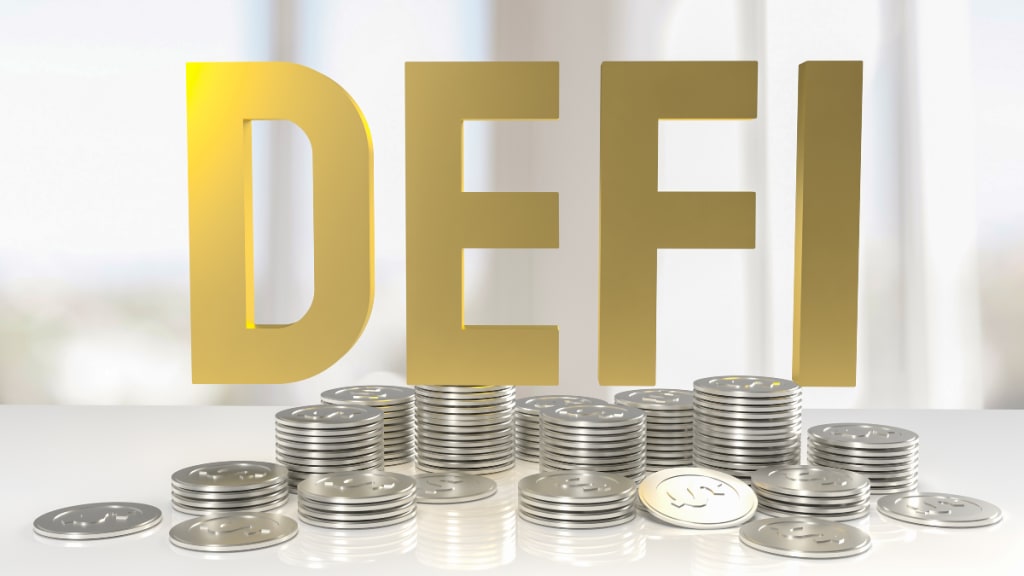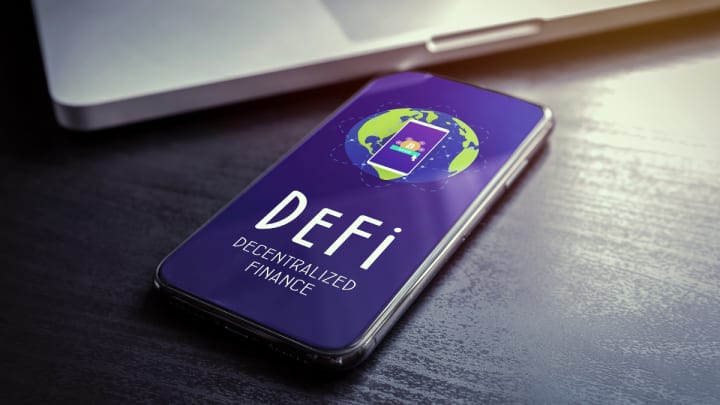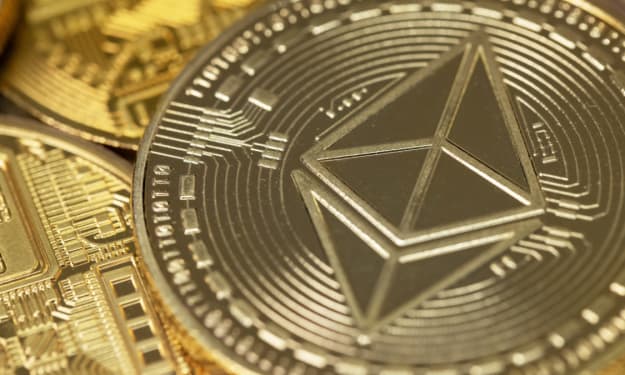Breaking Down Barriers: Empowering Financial Inclusion through DeFi Exchange Development
DeFi Exchange Development

Decentralized Finance (DeFi) has emerged as a revolutionary force in the financial landscape, promising to break down traditional barriers and democratize access to financial services. At the heart of this transformative movement lies the development of DeFi exchanges, which enable peer-to-peer transactions and empower individuals to take control of their financial lives.Through DeFi exchange development, financial inclusion becomes a tangible reality. These platforms enable individuals to access a wide range of financial services, including borrowing, lending, staking, and trading of digital assets, all without relying on intermediaries or centralized authorities. This opens up a world of possibilities for unbanked individuals, marginalized communities, and those who have been overlooked or underserved by traditional financial institutions.
Understanding the concept of defi exchange development
DeFi exchange development refers to the creation of decentralized finance platforms that facilitate peer-to-peer transactions and enable individuals to engage in various financial activities without the need for intermediaries or centralized authorities. These exchanges are built on blockchain technology, utilizing smart contracts to automate and enforce transactions transparently and securely. Unlike traditional financial systems, DeFi exchanges operate in a permissionless manner, allowing anyone with an internet connection to participate and access a wide range of financial services such as lending, borrowing, trading, and yield farming. By leveraging the principles of decentralization, transparency, and open-source collaboration, DeFi exchanges aim to democratize finance, providing equal opportunities for individuals regardless of their geographical location, financial status, or background. With DeFi exchange development, users have greater control over their funds, lower transaction costs, increased accessibility, and the ability to create and engage with innovative financial products and services. The concept of DeFi exchange development represents a paradigm shift in the financial industry, empowering individuals and fostering a more inclusive and equitable global financial ecosystem.
The significance of DeFi in promoting financial inclusion
DeFi, or decentralized finance, plays a significant role in promoting financial inclusion by offering accessible and inclusive financial services to individuals who have been underserved or excluded by traditional financial systems. By leveraging blockchain technology and smart contracts, DeFi eliminates the need for intermediaries, enabling direct peer-to-peer transactions and removing geographical barriers. This empowers individuals, particularly the unbanked and underbanked, to access a wide range of financial services such as borrowing, lending, saving, and investing without relying on traditional financial institutions. DeFi also enables individuals to maintain control over their funds, as they can securely store and manage their assets using decentralized wallets. Additionally, DeFi platforms operate 24/7, providing uninterrupted access to financial services globally. The programmability of DeFi allows for the creation of innovative financial products and services that cater to diverse user needs. Overall, DeFi's emphasis on inclusivity, accessibility, and financial autonomy has the potential to bridge the gap between the financially underserved and the global financial ecosystem, promoting greater financial inclusion and empowering individuals to participate in the digital economy.
Key Features and Benefits of DeFi Exchanges
DeFi exchanges offer key features and benefits that are reshaping the financial landscape and driving the adoption of decentralized finance. The following are the key features and benefits of DeFi exchanges:
- Peer-to-peer transactions without intermediaries: DeFi exchanges enable direct transactions between users, eliminating the need for intermediaries such as banks or brokers. This allows for faster, more efficient, and cost-effective transactions.
- Security and transparency through blockchain technology: DeFi exchanges operate on blockchain technology, providing a transparent and immutable record of transactions. This enhances security, as transactions are verifiable and resistant to tampering or censorship.
- Access to a wider range of financial services: DeFi exchanges offer a diverse array of financial services beyond traditional trading, including lending, borrowing, yield farming, and decentralized asset management. This opens up opportunities for users to earn passive income and access new investment avenues.
- Lower fees and reduced barriers to entry: DeFi exchanges often have lower fees compared to traditional financial institutions. This reduces costs for users, making financial services more affordable and accessible. Additionally, DeFi removes many of the barriers to entry, allowing anyone with an internet connection to participate.
- Global accessibility and inclusivity: DeFi exchanges operate on a global scale, providing access to financial services for individuals worldwide. They enable financial inclusion by reaching underserved populations who may lack access to traditional banking systems, fostering economic empowerment and opportunities for individuals globally.
Understanding the DeFi Exchange Development Process
Developing a DeFi exchange involves several crucial steps to create a secure and user-friendly platform. The following outlines the process:
- Setting the foundation: Begin by selecting a suitable blockchain platform, such as Ethereum, and develop the necessary smart contracts to facilitate the exchange's core functionalities. This includes contract code for handling transactions, wallet interactions, and managing user balances.
- Designing the user interface and experience: Create an intuitive and user-friendly interface for traders to interact with the exchange. Focus on providing easy navigation, clear information display, and responsive design to cater to various devices and screen sizes.
- Implementing liquidity protocols and market-making mechanisms: Integrate liquidity protocols like automated market-making (AMM) algorithms to ensure there are sufficient trading pairs and liquidity on the platform. Implement smart contracts that facilitate liquidity provision and automated trading functionalities.
- Integrating decentralized identity and KYC solutions: Incorporate decentralized identity solutions to enhance security and privacy. Consider integrating Know Your Customer (KYC) procedures to ensure regulatory compliance and mitigate fraudulent activities, while respecting user privacy through decentralized identity systems.
- Ensuring robust security measures and auditing: Implement robust security measures, including encryption, two-factor authentication, and secure key management. Conduct regular security audits to identify and address vulnerabilities. Consider partnering with third-party security firms to assess the platform's resilience against attacks and potential exploits.
Throughout the development process, it's important to prioritize community engagement and gather feedback from users and the broader DeFi community. Continuous improvement and iteration based on user input will contribute to the platform's success and adoption.

Exploring Popular DeFi Exchange Protocols
Several popular DeFi exchange protocols have gained significant traction within the decentralized finance ecosystem. Here are some notable ones:
- Uniswap: Uniswap is a decentralized exchange protocol built on the Ethereum blockchain. It utilizes an automated market-making (AMM) model, enabling users to trade ERC-20 tokens directly from their wallets. Uniswap employs liquidity pools where users can contribute their assets to provide liquidity and earn fees in return.
- SushiSwap: SushiSwap is a community-driven decentralized exchange built on the Ethereum network. It was created as a fork of Uniswap, aiming to enhance liquidity incentives and introduce additional features such as yield farming and staking. SushiSwap introduced its native token, SUSHI, which allows users to participate in governance and earn rewards.
- PancakeSwap: PancakeSwap is a decentralized exchange protocol operating on the Binance Smart Chain (BSC). It offers a similar AMM model to Uniswap but with lower fees and faster transactions. PancakeSwap has gained popularity due to its compatibility with BSC and its native token, CAKE, which can be staked and used for yield farming.
- Balancer: Balancer is a decentralized portfolio manager and automated portfolio rebalancer. It allows users to create liquidity pools with multiple tokens and different weights. Balancer's protocol enables users to earn fees by providing liquidity while also offering more advanced strategies for token allocation and portfolio management.
- Curve Finance: Curve Finance is a decentralized exchange protocol optimized for stablecoin trading. It provides low slippage and low fee trading of stablecoin pairs. Curve Finance focuses on maximizing liquidity for stablecoins to facilitate efficient trading and stablecoin swaps.
Conclusion
In conclusion, DeFi exchange development is revolutionizing the financial landscape by breaking down barriers and promoting financial inclusion. By leveraging decentralized technologies, these exchanges provide accessible and transparent financial services to individuals who have been traditionally excluded. With lower entry barriers, peer-to-peer transactions, and global accessibility, DeFi exchanges empower individuals worldwide to engage in various financial activities. The removal of intermediaries and the utilization of blockchain technology ensure security, transparency, and control over funds. Through DeFi exchange development, financial inclusion becomes a reality, fostering economic empowerment and driving a more inclusive and equitable financial ecosystem.






Comments
There are no comments for this story
Be the first to respond and start the conversation.